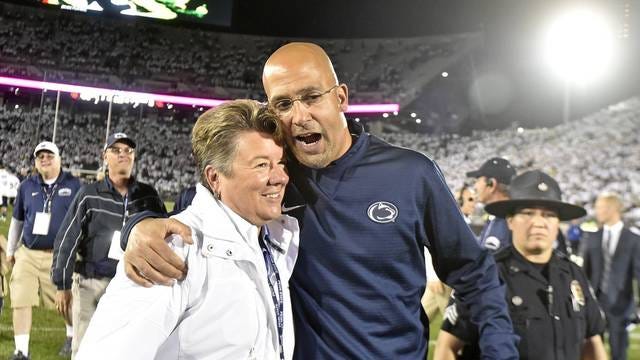Governance Failure in Action: The James Franklin Contract Process
Was this contract actually approved?
Penn State football head coach James Franklin’s new contract has been the source of much discussion since it was announced on November 23rd. Many have already written about and discussed that topic, and Mike Poorman did a thorough job breaking down the many issues in his excellent article James Franklin’s 100 Games and Penn State Contract: I Crunched the Numbers so You Don’t Have to.
What hasn’t been discussed, however, is the manner in which Franklin’s new contract was created. It’s evidence - once again - of the systemic dysfunction of the Penn State Board of Trustees.
Cutting to the chase: Franklin’s contract has never been approved by the Penn State Board of Trustees.
One might ask, how can Penn State take on an $85 million obligation without the approval of the Penn State Board? Let’s review the provenance of the contract:
James Franklin, Penn State’s head football coach, signed a six-year, fully guaranteed contract in 2020, 21 months ago.
That contract, and the remaining 4+ years of that contract, was torn up and replaced by a new contract.
The new contract was a ten-year fully guaranteed contract, at a significant increase in pay.
The contract was created by the Penn State Board of Trustees’ Compensation Committee - a small group (five members, all appointed to the Board) of Penn State Board of Trustees.
Now, common sense would indicate that all 38 members of the Penn State Board should be involved in, and approve of, any action that would bind Penn State to an $85 million expense. More importantly, Penn State’s Bylaws (as noted below) require that the full Board be involved in, and approve of, such an obligation.
A quick note of review:
The establishment of “Committees” of the Board is a relatively new development. The Compensation Committee was only formed in November of 2013. Each of these committees was set up with specific and limited responsibility for specific tasks. In the case of the Compensation Committee, those roles were limited to the following: (from the current Penn State Board Bylaws):
Bylaw 3.03:
”This subcommittee shall assist the Board with executive compensation philosophy and strategy pertaining to the University’s senior leadership positions; the annual review and approval of the President’s personal goals and objectives, performance and annual compensation, including salary and incentive compensation, if applicable; and will make decisions and recommendations for and on behalf of the Board of Trustees, when appropriate, relating to the effectiveness of executive compensation, benefits, performance management, and leadership development”
That is all. The Bylaws do NOT grant this subcommittee any authority to commit the University to contracts, and certainly not to long-term $85 million obligations.
In fact, the Bylaws explicitly state that as such - in Bylaw 5.09:
”The following matters shall require the approval of the Board of Trustees… The evaluation and compensation of University executives (other than the President of the University), in accordance with policies and procedures recommended by the subcommittee on compensation from time to time.”
In other words, the Compensation Committee can, and should from time to time, make recommendations to the Board. But is not authorized to approve such actions without full Board approval.
This would certainly not be the first time that the Penn State Board of Trustees and administration simply ignored their fiduciary responsibilities. But it does, certainly, beg the question: How are they able to get away with it? Specifically, why are members of the Board - many of whom, I am certain, do not agree with these actions - not speak up and bring these issues to light?
There are only so many options:
Are they unaware of their own obligations, duties, and rights?
Are they indifferent to their duties and obligations?
Are they afraid to speak up, and perform their duties, out of fear of being ostracized by Board leadership?
I think we cannot exclude any of these scenarios.
Regardless of what one thinks of the specifics of James Franklin’s new contract, every Penn Stater should be greatly concerned with the manner in which it was created, and the manner in which $85 million of Penn State funds were committed without the approval, or even a discussion by their duly sworn fiduciaries on the Penn State Board of Trustees.
Responsible Governance is not a tagline. It is an action, and a commitment, which must be carried out every day, without fail.
Nominations for candidates to the Penn State Board of Trustees will run from January 15th - February 15th, 2022. I humbly request your nomination. Barry J Fenchak, ‘84 Engineering.




